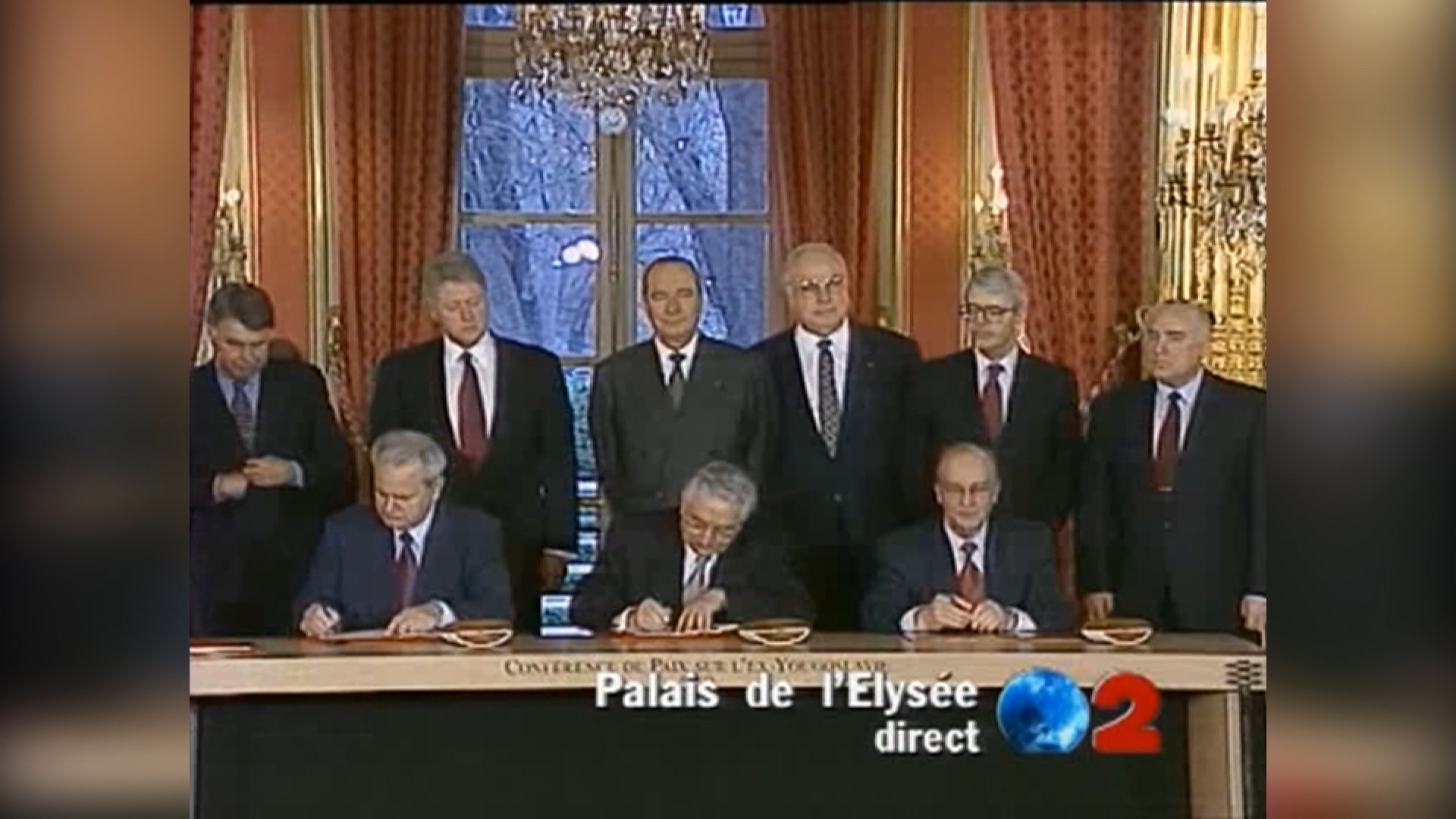
The Dayton Peace Agreement which ended the 1992-95 Bosnian war was signed on this date 25 years ago in Paris.
The peace treaty put an end to the four-year bloody conflict and organised Bosnia and Herzegovina as a country of three constituent peoples and others, dividing it into two semi-autonomous entities – the Bosniak-Croat shared Federation (FBiH) and the Serb-majority Republika Srpska.
The main actors of the peace negotiations and the signing of the agreement were late President of what was then called the Republic of Bosnia and Herzegovina, Alija Izetbegovic, President of Croatia, Franjo Tudjman, and Serbia, Slobodan Milosevic.
All three states were created by the dissolution of the Socialist Federal Republic of Yugoslavia.
"This is not a just peace, but it is fairer than continuing the war. In a situation like this, and in the world as it is, a better peace could not have been achieved," Alija Izetbegovic said after the signing of the Dayton Agreement in Paris.
The final agreement was preceded by talks in the Dayton, Ohio, led by then US Secretary of State Warren Christopher and negotiator Richard Holbrooke, with representatives from the European Union. Those who witnessed the signing of the document in Parris included the senior officials of the USA, the UK, Germany, France, Spain and Russia.
Twenty-five years later, some foreign diplomats are raising the issue of the necessity to upgrade the Bosnia's Constitution, which is contained in the Dayton Peace Agreement, so the country can move forward as an equal member of the European community.
“The change is possible. It can happen within the Dayton system. Great progress was made during the first ten years and it can happen again in the years to come. Let's open a new chapter in 2021,” said High Representative Valentin Inzko, the international envoy overseeing the peace agreement's implementation.
“At the time the Dayton Accords were reached, we knew then that they represented a beginning, not an end. Reconciliation is not a finite process, it’s something you must begin again and again - day after day, year after year,” said Bill Clinton, the former US President, whose presidency was marked with the military intervention and subsequent peace negotiations in Bosnia as the most important achievements.
European Union foreign policy chief, Josep Borrell, stressed the future of Bosnia and Herzegovina lies within the Union, but in order for that to come true, the political leadership of the country will have to take responsibility and enable the reforms that the country needs.
Kakvo je tvoje mišljenje o ovome?
Učestvuj u diskusiji ili pročitaj komentare





 Srbija
Srbija
 Hrvatska
Hrvatska
 Slovenija
Slovenija







